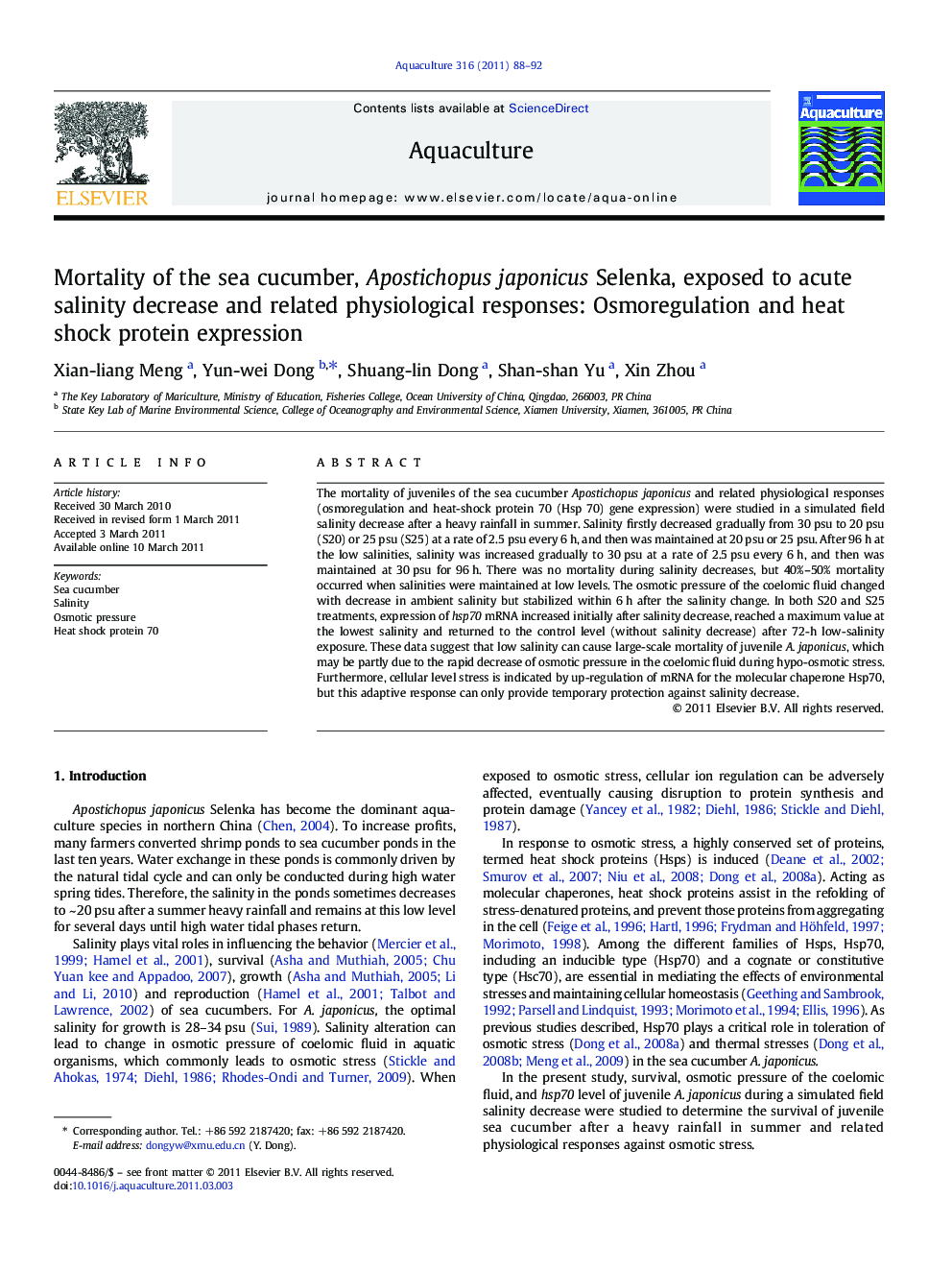| Article ID | Journal | Published Year | Pages | File Type |
|---|---|---|---|---|
| 2422946 | Aquaculture | 2011 | 5 Pages |
The mortality of juveniles of the sea cucumber Apostichopus japonicus and related physiological responses (osmoregulation and heat-shock protein 70 (Hsp 70) gene expression) were studied in a simulated field salinity decrease after a heavy rainfall in summer. Salinity firstly decreased gradually from 30 psu to 20 psu (S20) or 25 psu (S25) at a rate of 2.5 psu every 6 h, and then was maintained at 20 psu or 25 psu. After 96 h at the low salinities, salinity was increased gradually to 30 psu at a rate of 2.5 psu every 6 h, and then was maintained at 30 psu for 96 h. There was no mortality during salinity decreases, but 40%–50% mortality occurred when salinities were maintained at low levels. The osmotic pressure of the coelomic fluid changed with decrease in ambient salinity but stabilized within 6 h after the salinity change. In both S20 and S25 treatments, expression of hsp70 mRNA increased initially after salinity decrease, reached a maximum value at the lowest salinity and returned to the control level (without salinity decrease) after 72-h low-salinity exposure. These data suggest that low salinity can cause large-scale mortality of juvenile A. japonicus, which may be partly due to the rapid decrease of osmotic pressure in the coelomic fluid during hypo-osmotic stress. Furthermore, cellular level stress is indicated by up-regulation of mRNA for the molecular chaperone Hsp70, but this adaptive response can only provide temporary protection against salinity decrease.
